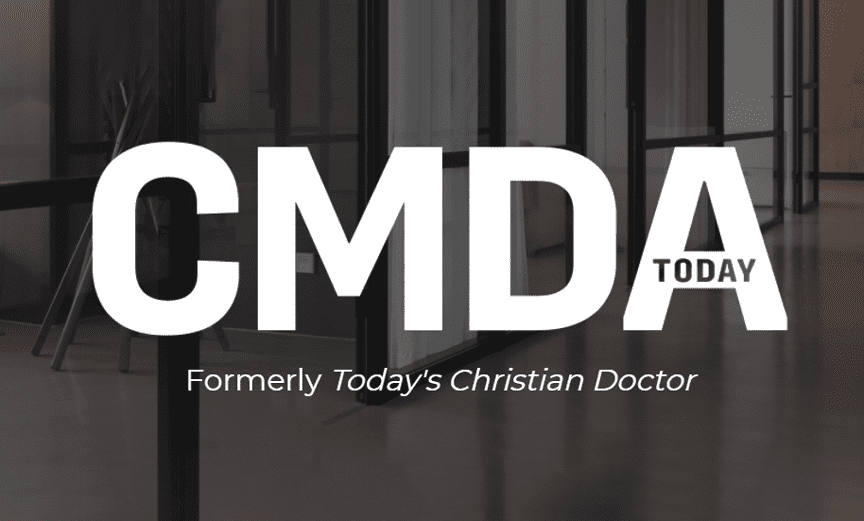
Professional, Not Provider—Please!
“You have to prescribe some penicillin for my sore throat.” “When I feel like this my real doctor always gives me…” Phrases like these were extremely common in my daily practice when I served as a physician at a university student health center early in my career. Those words were often a result of simple naivete, but consumer-driven patient attitudes have intensified dramatically through the years. Here in Canada, where euthanasia/assisted suicide is legal, I currently face more serious and sinister demands in my palliative care practice.
“You have to prescribe some penicillin for my sore throat.”
“When I feel like this my real doctor always gives me…”
Phrases like these were extremely common in my daily practice when I served as a physician at a university student health center early in my career. Those words were often a result of simple naivete, but consumer-driven patient attitudes have intensified dramatically through the years. Here in Canada, where euthanasia/assisted suicide is legal, I currently face more serious and sinister demands in my palliative care practice.
“I don’t want to live any more—there’s just no joy left. Please arrange everything so that I can go immediately.”
“I’m ready to die right now! Do what needs to be done to make that happen.”
In the midst of these tragic situations, the diplomatic skills I honed while working with students have helped me to navigate these shoals with my integrity and Christian principles intact. However, these blunt directives expose our culture’s deepening sense of expectation and entitlement in healthcare matters, and the language we have allowed to infiltrate our profession has played a major role in facilitating and reinforcing this change.
In recent years, the word “provider” has become a common designation for healthcare professionals responsible for patient care. These include physicians, physician assistants, nurse practitioners, nurses, pharmacists and others. Provider used to be an honorable designation reserved for specific contexts—a provider in the home, for example. And, after all, God calls Himself Jehovah Jireh, our Provider. In healthcare, however, the use of the word connotes and enforces a commercial, corporate and passive perspective. The ethical, vocational practitioner is degraded to someone who provides what the consumer desires and what officials will allow.
As healthcare professionals have become “providers,” we have also experienced pressure for patients to become, and to be called, “clients.” Our medical culture was from an era in which trained practitioners told untrained patients what was needed. Today, at least in some settings, we see untrained patients tell clinicians what they want. If the professional disagrees or hesitates, patients tend to be offended, angered or shocked. The reason for a clinician’s hesitation is irrelevant to them in the face of their demands, even when patients’ demands are based on an internet testimonial or the suggestion of a friend. Well, so what!? Isn’t it their choice?
“Provider” signals a move away from the Hippocratic tradition of a medical covenant, a committed relationship for personal, individual care, and a move toward a commercial, transactional one. By definition, a covenantal relationship involves a binding commitment between patient and practitioner. It implies a stronger bond and duty to care—a bond withstanding hardship, disappointment, tragedy and even misunderstanding—rather than a mere commercial contract.
Medicine is a “moral” profession according to its very nature—dealing with the “shoulds” and “oughts” of our patients’ lives. Our years of training and experience are critical resources when patients seek our advice, asking us what we think they should do or what treatment they ought to pursue. As Dr. Francis Peabody said in a famous address in 1927, “…the secret of the care of the patient is in caring for the patient.”[1]
Truly caring involves giving what we believe to be the best medical advice possible, even when it is not what patients want to hear and may not be a course they wish to follow. It is much easier for our patients—and their loved ones—to consider our recommendations more seriously if they have a trusting relationship with us and believe we genuinely care for them.
If we create only a consumer-provider relationship, it can be difficult to give the guidance or earn the trust so desperately needed in challenging situations. It can even be an excuse for the healthcare professional to rationalize following the patient’s direction, even where experience and training suggest it is not the best course of care.
Just because a treatment is requested does not mean it is clinically appropriate. Patients’ perspectives are often limited to the pain and fear of a diagnosis or limit. The practitioner who has seen hundreds of similar cases, and the potential for better outcomes, may have another view. Denying that perspective is a disservice to the person in need. For example, a person rendered paraplegic following an accident may think life is no longer worth living, whereas a physician who has treated hundreds similarly can say, “Give us time to show you that life, while different, will still be worthwhile.”
Today, the dominance of consumer-based, provider-ship permeates most deeply the areas of healthcare that are morally most contentious—especially those involving life and death. In several Canadian jurisdictions, physicians who are opposed to a legal procedure risk losing their licenses to practice if they refuse to provide a formal “effective referral” to another physician who will carry out a patient’s request. This happens even if the attending physician’s clinical assessment renders the procedure, such as an abortion or euthanasia/assisted suicide, inappropriate.
This sense of the commercial drives the current move by some bioethicists to insist that anyone admitted to medical school be prepared not only to approve, but also to perform, any legal procedure.[2] They continue by declaring that those who are unwilling to do so should find another profession. The Hippocratic ideal of vocational practice simply becomes a commercial undertaking with little moral grounding.[3]
Herein lies the danger hidden in the language but evident in the reality of complex care. In denying the healthcare professional’s conscience,[4] they also deny the ideal of conscientious practice grounded in the practitioner’s personal ethics as well as his or her training and experience.
As “providers,” clinicians are answerable to a patient’s wishes and to the dictates of the commercial insurers and government agencies that have deemed a particular procedure legal and thus appropriate. Nevertheless, just because it is legal does not mean it is ethical or moral. Time and again, the sundering of conscientious practice from official dictates has been horrific. That was the message at the Nuremburg Trials, in which Nazi physicians were simply following orders in the concentration camps, and at Tuskegee, where patients became mere objects of experimentation.
A hypocrisy is inherent in the insistence by some who believe that, as “providers,” clinicians must dutifully answer the patients’ demands and adhere to the dictates of supervising organizations. However, it is worth noting and emphasizing that, despite the insistence on patient rights and the physician’s obligations as a “provider,” these often do not extend to the marginalized and fragile communities in need. As published reports have emphasized, members of the First Nations are often denigrated and denied the care they request and, sometimes, the care they need.[5] So, too, are those with critical disabilities receiving sub-standard care from the systems responsible for their healthcare and social well-being. The case of Roger Foley in Hamilton, Ontario, in Canada, which is much in the news in Canada and is still being adjudicated in the courts, is only one example.[6]
As healthcare professionals, we do ourselves a serious disservice by allowing ourselves to be called “providers.” Healthcare is more than a simple service. Let us refuse the label and pledge to use the titles—clinician, doctor, physician, practitioner or professional—that best reflect our role as vocational carers.
As such, and as Oslerian practice once recommended, with our patients we commit to listen to each other and use our collective wisdom and resources to arrive at the best possible treatment. Numerous factors will contribute to that outcome. Arriving at it will not be a quick, short-order menu but a complex dance among participants to arrive at an acceptable, feasible and effective plan.
As Christian healthcare professionals, we are well acquainted with the tremendous gift of Jesus, Emmanuel (God with us). As a result of His life, death and resurrection—His sacrifice on our behalf—we can experience a close, covenantal relationship with the living God. It is also a gift to be a healthcare professional, to be invited to walk alongside other members of our human family in both darkness and joy. May Jehovah Jireh truly be our Provider—the One who gives us the strength and wisdom to love and care for our patients and each other, as He would desire, and to be the healthcare professionals He has called us to be in partnership with Him.
About the Author
Margaret Cottle, MD, is a palliative care physician in greater Vancouver, British Columbia, and a clinical assistant professor at the University of British Columbia (UBC) Faculty of Medicine. She speaks internationally about end-of-life issues and palliative care, and she addressed members of the Canadian Parliament in 2006 and 2017. Dr. Cottle and her husband, Dr. Robin Cottle who is an ophthalmologist, sponsor the UBC student chapter of CMDA Canada, hosting the students weekly for dinner and discussions. Cara, their black Labrador retriever, accompanies Dr. Cottle on some of her home hospice visits. The Cottles have two grown children and four (wonderful!) grandchildren.
[1] Peabody Francis W. The Care of the Patient. JAMA. 1927;88(12):877-882. doi:10.1001/jama.1927.02680380001001.
[2] Savulescu J., Schucklenk U. Doctors Have no Right to Refuse Medical Assistance in Dying, Abortion or Contraception. Bioethics 2016. https://doi.org/10.1111/bioe.12288.
3 Worthen L.; Potter S. Euthanizing Hippocratic medicine? CMF: Triple Helix, 2021. https://www.cmf.org.uk/resources/publications/content/?content=article&id+27278. Is the journal CMF or Triple Helix?
[4] Schucklenk U. Why Medical Professionals Have No Moral Claim to Conscientious Objection Accommodation in Liberal Democracies. Bioethics 2017); 162-170. https://doi.org/10.1111/bioe.12288
5 Wylie, L., McConkey, S. Insiders’ Insight: Discrimination against Indigenous Peoples through the Eyes of Health Care Professionals. J. Racial and Ethnic Health Disparities 6, 37–45 (2019). https://doi.org/10.1007/s40615-018-0495-9
6 Koch T. The right to a compassionately accepted life, not death. Toronto Star. April 2, 2018. https://www.thestar.com/opinion/contributors/2018/04/02/the-right-to-a-compassionately-assisted-life-not-death.html.
This Feature Story Appears in:
Other Recent CMDA Today Articles:
- « Previous
- 1
- …
- 3
- 4
- 5




